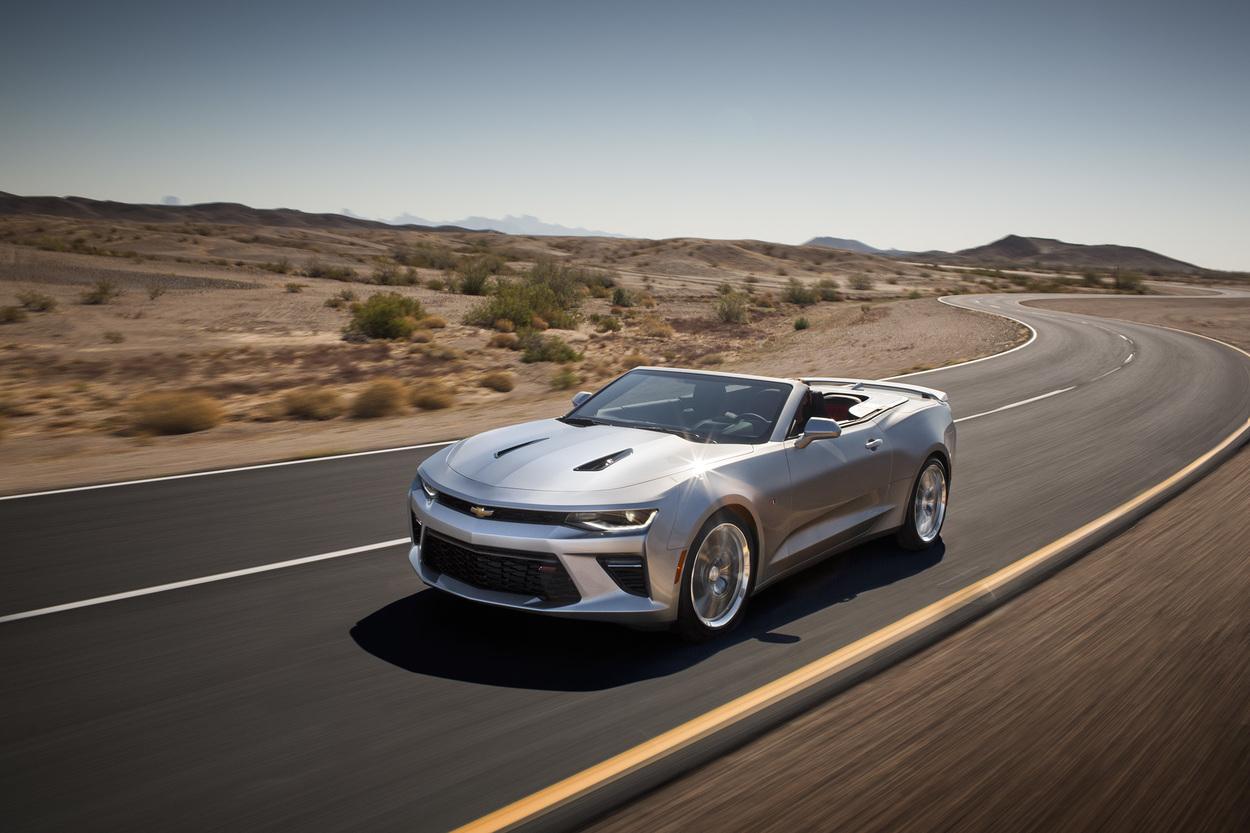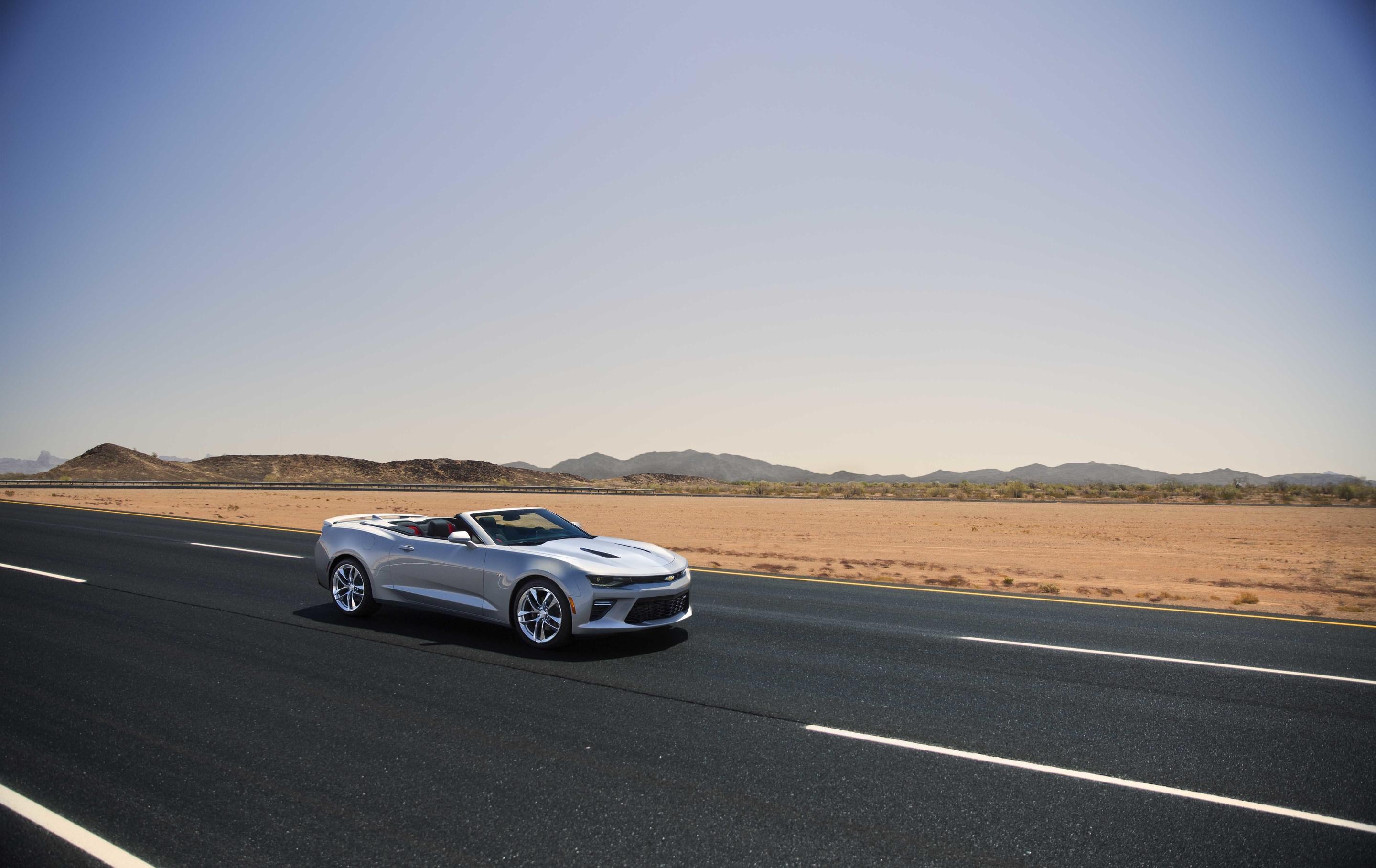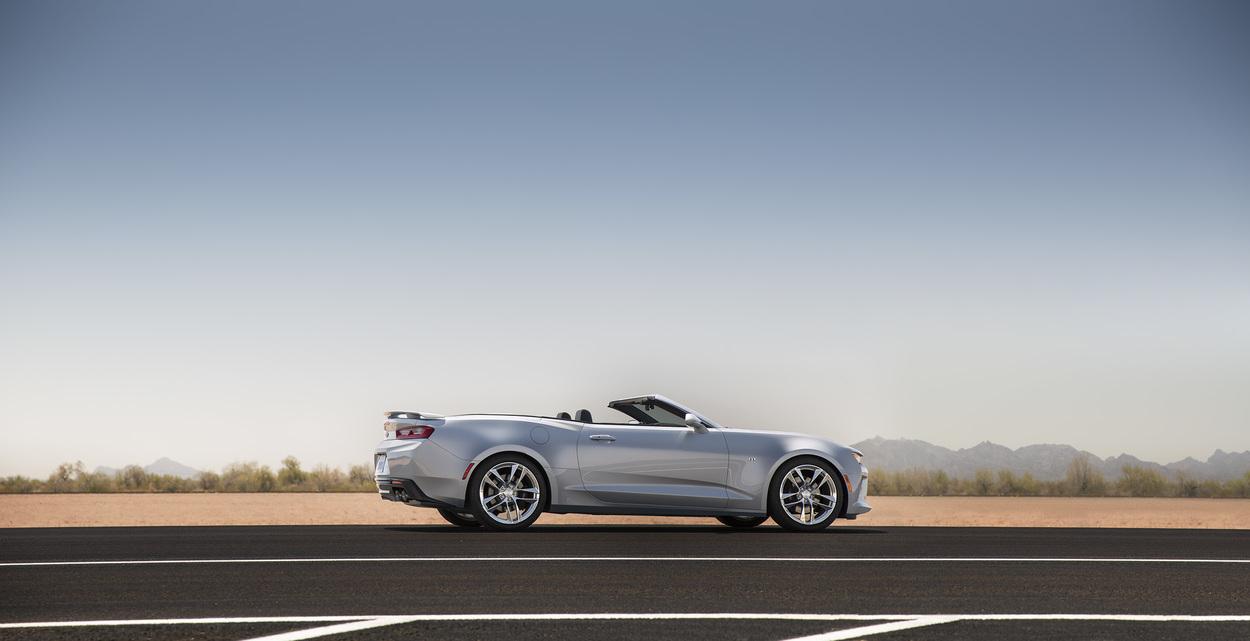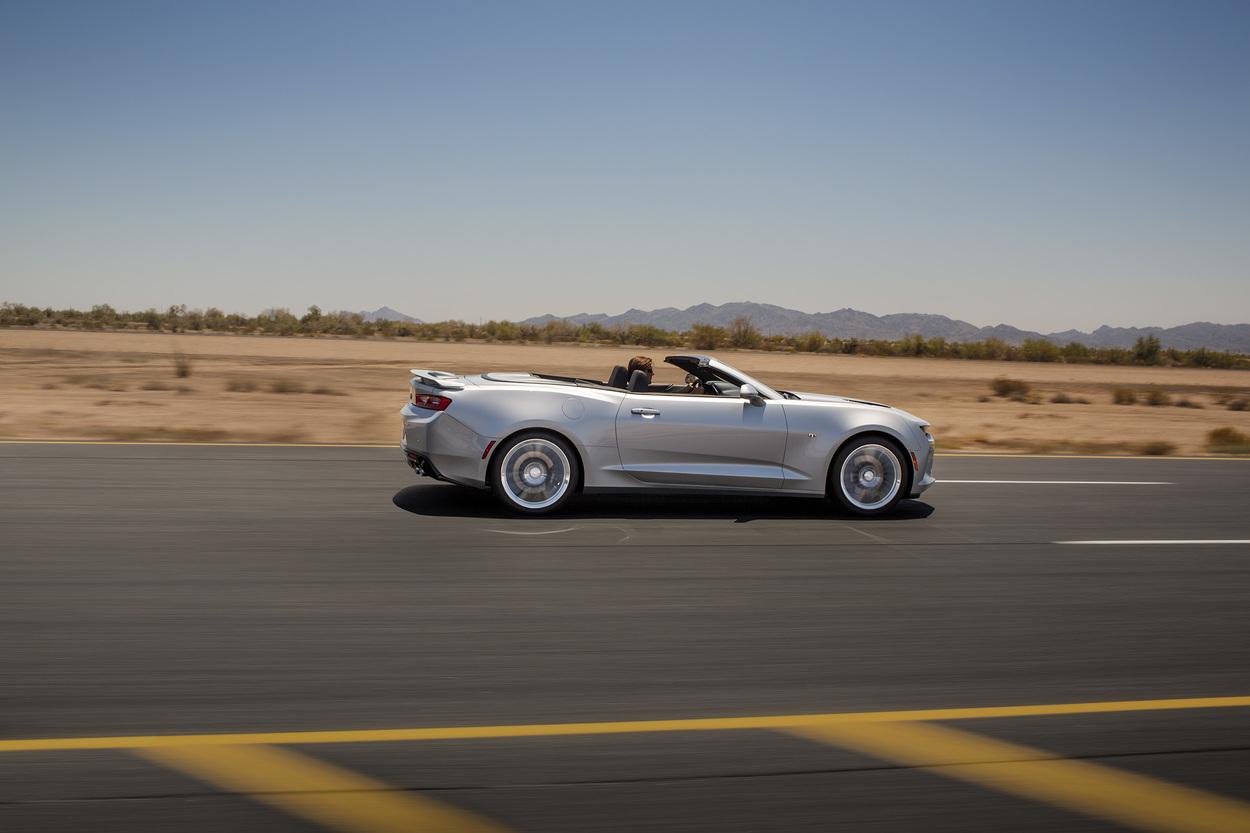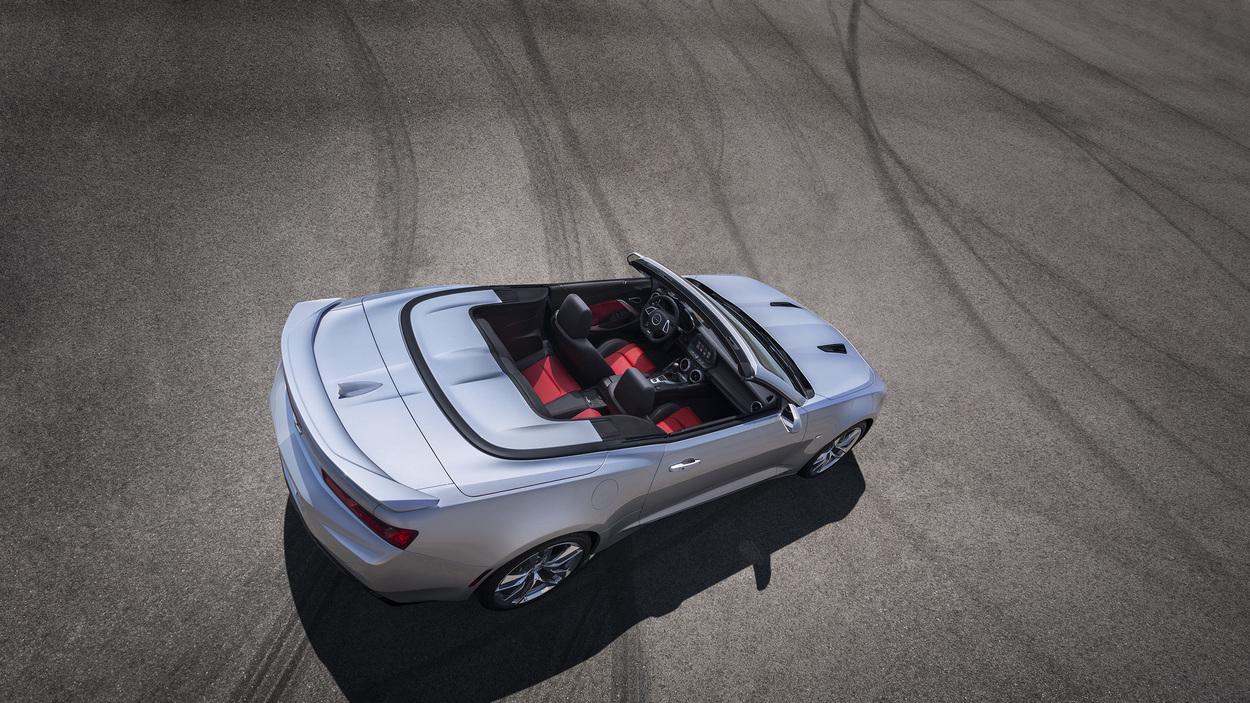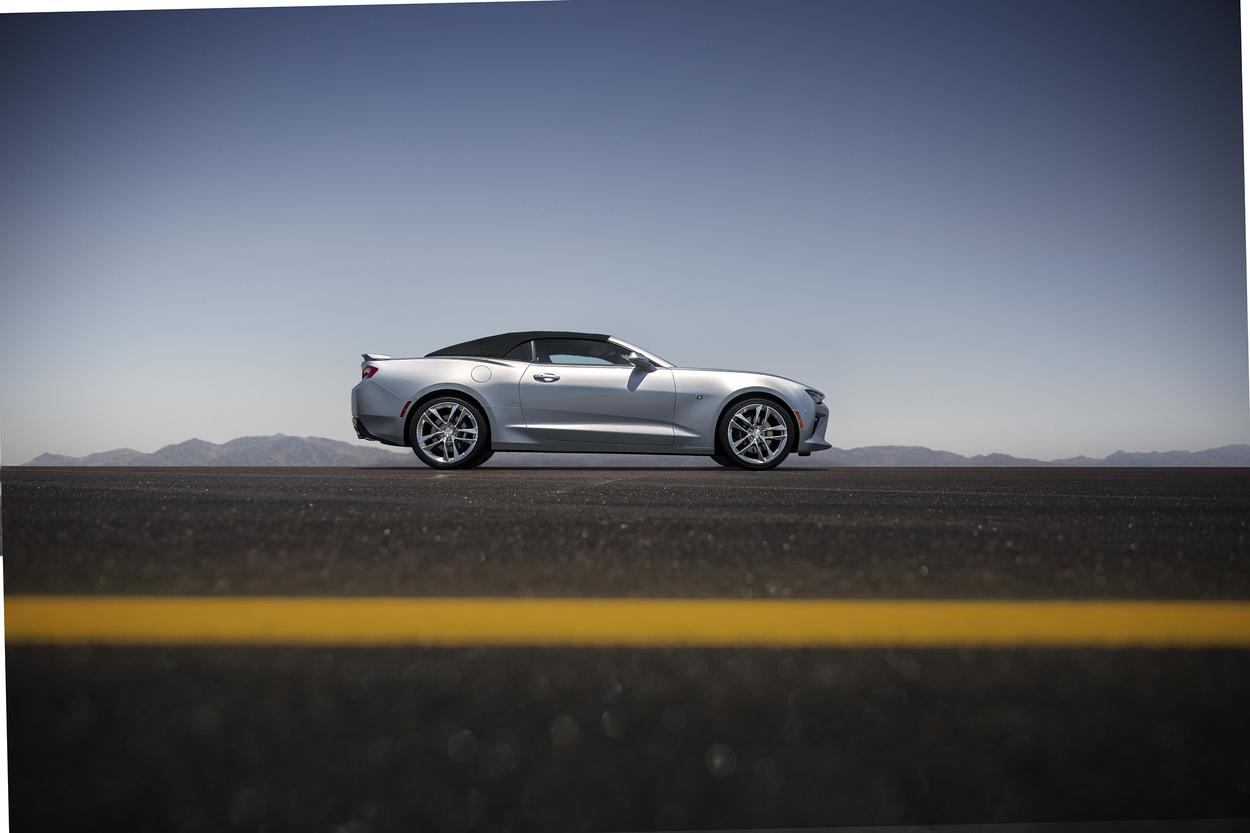At the 2015 Powered by Innovation event in Detroit, Chevrolet pulled the covers off the all-new 2016 Camaro convertible. Don’t expect some flimsy manual soft-top though, because according to the brand, the droptop muscle car features the segment’s most-advanced moveable roof.
The vehicle’s fully-automatic hard tonneau cover can be operated from both inside the car and out by way of a remote-control key fob, and the top can be opened or closed at speeds up to 30 mph. What’s more, the electro-hydraulic unit features multiple acoustic and thermal layers, designed to keep the cabin as quiet and the occupants as comfortable as in the Camaro coupe.
“The 2016 Camaro coupe will set the benchmark for the segment in terms of technology, performance, and design,” said Todd Christensen, Camaro marketing manager. “Adding the most sophisticated top in the segment brings another level of refinement, and driving enjoyment, to the Camaro convertible.”
Pricing for the droptop hasn’t been released yet, but the new Camaro convertible is set to arrive in early 2016.
Like the coupe that was unveiled in May, the convertible employs a new chassis and body that saves 200 pounds or more over the outgoing model. The evolutionary styling changes have migrated to the open-top version as well, resulting in a car that’s two inches shorter and one inch wider than the 2015 version.
As with the coupe, six powertrains will be available with the 2016 convertible. A 2.0-liter turbo kicks things off with 275 horsepower and 295 pound-feet of torque, and a 3.6-liter V6 takes up the middle ground with 335 hp and 285 lb-ft. The range-topping (for now) SS utilizes a 6.2-liter V8 with 455 hp and an identical 455 lb-ft. Each engine will be available with either a six-speed manual or eight-speed automatic transmission.
